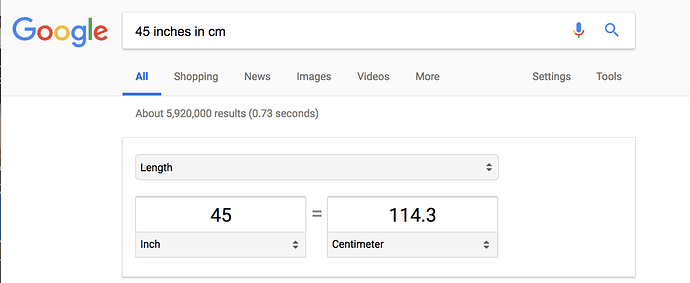I agree that one can work in any measurement system, and either not do much calculation with it, or figure out how to make it work for them. (Kinda like certain features of the Glowforge presently.) And it’s easy to add too much value judgement to the fact that some systems are easier to use than others.
But this statement of yours is ain’t quite right:
The biggest issue in imperial is the use of unlike units for measuring the same thing. For example, for length having to convert between inches, feet, yards, and miles is cumbersome and error prone.
I cook in metric because it’s just plain easier to do calculations and scaling of recipes.
For example, I bake bread. For a given a recipe the amount of dough I make can vary by a factor of five. Let’s say one unit of recipe calls for 2 tablespoons of salt. To make 5 units I would need 10 tablespoons. Well that’s a pain to measure out, but how does that scale to a larger unit, say a liquid ounce so I only have to measure once? Or if I use 2 tablespoons of salt for the 5 unit recipe where’s my 2/5 tablespoon measure for doing one unit? How hard is it to do the calculations and find the right measuring devices if I want to do 2.5 units?
Or if I have a recipe for 6 people and want to scale it for 4 people, metric is easier to do the calculations and measure out if the recipe is in grams instead of a smattering of unlike units.
Extrapolating the scale issue a bit, the base recipe can just be based on percentages instead of exact weights - I have cookbooks that do that. And it’s much easier to do that in metric than imperial.
(And by the way, since in the metric system mass is defined in terms of distance it’s easy for me to translate between volume and weight for lots of liquids I cook with. For water, the volume of a gram of water is 1 cubic centimeter - so one liter of water is one kilogram. In imperial I would have to remember the saying ‘A pint’s a pound the world around’, and even then that’s just an approximation. Making a 6% brine is easier to calculate and measure and scale in metric than in imperial.)
Or take the issue of land measurement. The lot size for a house can be given in square feet or acres. If I’m looking at one house that is on 15,000 sq. ft., and one on 1/3 of an acre which is larger? Why should I even have to think about doing a conversion between unlike units, even before realizing that I have no clue how many square feet are in an acre?
Or let’s say that a closed path in the park is 750 feet. How many miles do I go if I go around the path 10 times? Easier and more accurate to do the conversion in metric from meters to kilometers.
This post is longer than I expected, so I’ll just stop here.




